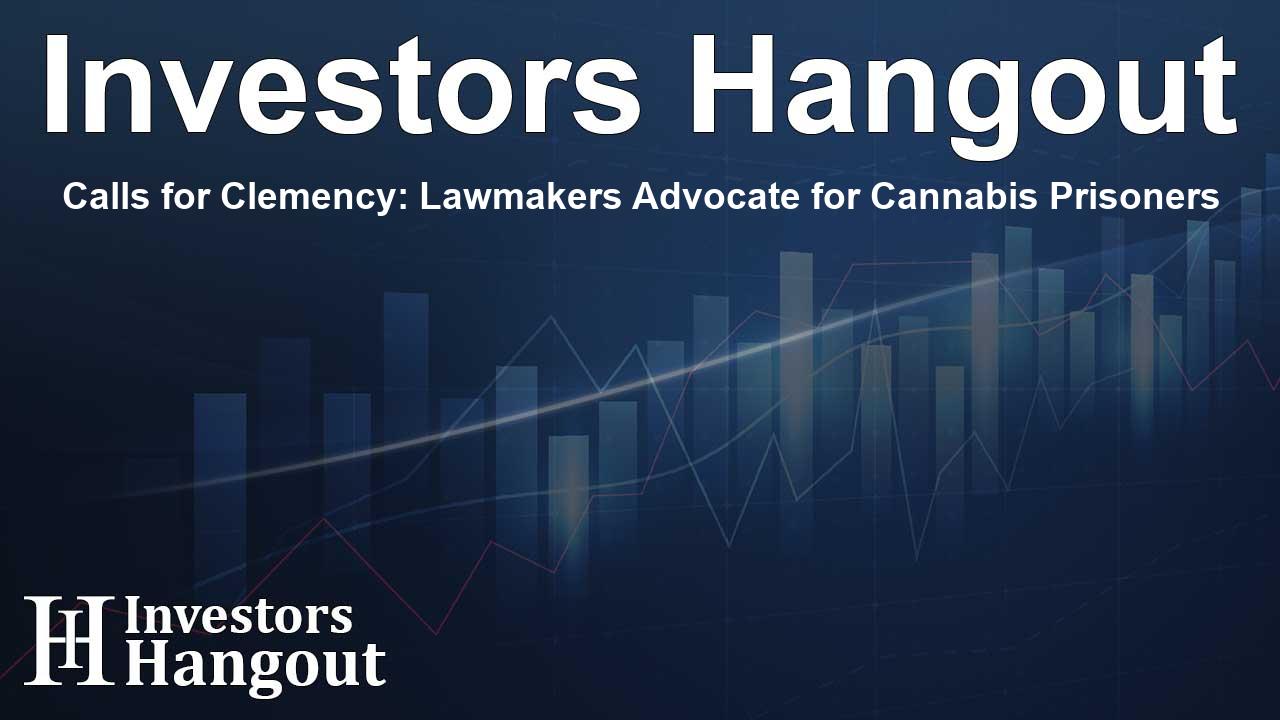Calls for Clemency: Lawmakers Advocate for Cannabis Prisoners

Advocating for Justice and Freedom
Recently, a significant coalition comprising justice reform advocates and families impacted by incarceration joined forces with prominent congressional figures. Their collective voice called upon President Biden to exercise his clemency powers before his term concludes, aiming to release those imprisoned for non-violent federal cannabis offenses. Their plea highlights the urgency in addressing a matter that has affected countless lives across the nation.
Clemency Authority and Mass Incarceration
The letter sent to President Biden emphasizes the necessity of clemency as a means of rectifying unjust laws and harsh sentences passed down by previous administrations. It urges the president to act decisively to reunite families and rectify longstanding injustices within the legal framework. The moral imperative behind this action is underscored by the collective experiences of children longing to reconnect with their incarcerated family members.
The Faces Behind the Plea
Among the lawmakers leading this compassionate initiative are Reps. Ayanna Pressley, James E. Clyburn, and Mary Gay Scanlon, who together have garnered the support of 67 Democratic members of Congress. Their advocacy represents not just political alignment, but a heartfelt commitment to correcting the injustices faced by individuals who have already acknowledged their mistakes and sought opportunities for redemption.
Personal Testimonials Reflecting the Need for Action
Congresswoman Ilhan Omar shared her insights, noting the peculiar disparity between the legality of cannabis in various states and the continued incarceration of individuals for cannabis-related offenses. While progress is evident in places like Minnesota, there remains an urgent need for federal-level action. Omar’s statements resonate with those who feel the impacts of unjust imprisonment, as many individuals have spent years behind bars for actions now deemed lawful.
Recent Initiatives to Highlight Injustice
The ongoing efforts reflect broader movements championed by organizations like the Last Prisoner Project, which advocate for justice reform and the decriminalization of cannabis. Their #Countdown4Clemency campaign puts public pressure on the presidency to grant full pardons to those incarcerated for cannabis crimes, a necessary step towards familial reunification and societal healing.
Addressing the Voices of Families
Personal stories shared by families affected by these policies underscore the pain and longing for resolution. Mitzi Wall, whose son remains imprisoned, articulated the stark contrast between state-level clemency and the actions needed at the federal level. Her experience underscores the dire need for President Biden to act decisively.
The Plight of Incarcerated Fathers
The issue of mass incarceration particularly affects Latino fathers, as underscored by advocates like Jason Ortiz from the Last Prisoner Project. He highlighted the plight of fathers who are serving lengthy sentences for offenses that are no longer illegal, pointing out stories like that of Edwin Rubis, who has faced decades behind bars.
Impact of Policy on Families
Stories of prisoners like Ricardo Ashmeade, with 22 years left due to the three-strikes law, exemplify the urgent need for legislative change. His daughter's lengthy separation from him illustrates the human cost of harsh sentencing laws, particularly when cannabis is now legalized in many areas.
Conclusion: A Call to Action for Change
As advocates continue to pressure President Biden for comprehensive clemency for individuals still serving sentences for cannabis offenses, it is vital that their pleas not only resonate with lawmakers but also find empathy within the wider public. The journey towards justice is ongoing, and with collective efforts, there remains hope for a future where reunion and healing are possible.
Frequently Asked Questions
What is the main goal of the letter sent to President Biden?
The main goal is to urge the president to grant clemency to non-violent federal cannabis prisoners before his term concludes.
Which lawmakers are leading this initiative?
The initiative is led by Reps. Ayanna Pressley, James E. Clyburn, and Mary Gay Scanlon, among others.
Why is clemency considered necessary?
Clemency is seen as a means to rectify unjust laws and harsh sentences while promoting family reunification and addressing systemic injustices.
How has cannabis legalization affected prisoners?
While cannabis is legal in many states, individuals are still imprisoned for cannabis offenses, highlighting a disconnect in legal policies.
What ongoing campaigns support clemency for cannabis prisoners?
The Last Prisoner Project's #Countdown4Clemency campaign seeks to raise public awareness and encourage clemency for those incarcerated for cannabis crimes.
About Investors Hangout
Investors Hangout is a leading online stock forum for financial discussion and learning, offering a wide range of free tools and resources. It draws in traders of all levels, who exchange market knowledge, investigate trading tactics, and keep an eye on industry developments in real time. Featuring financial articles, stock message boards, quotes, charts, company profiles, and live news updates. Through cooperative learning and a wealth of informational resources, it helps users from novices creating their first portfolios to experts honing their techniques. Join Investors Hangout today: https://investorshangout.com/
Disclaimer: The content of this article is solely for general informational purposes only; it does not represent legal, financial, or investment advice. Investors Hangout does not offer financial advice; the author is not a licensed financial advisor. Consult a qualified advisor before making any financial or investment decisions based on this article. The author's interpretation of publicly available data shapes the opinions presented here; as a result, they should not be taken as advice to purchase, sell, or hold any securities mentioned or any other investments. The author does not guarantee the accuracy, completeness, or timeliness of any material, providing it "as is." Information and market conditions may change; past performance is not indicative of future outcomes. If any of the material offered here is inaccurate, please contact us for corrections.